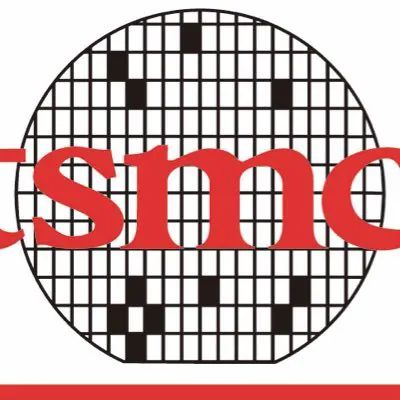
Major Shakeup in Semiconductor Industry: TSMC Eyes Joint Venture with U.S. Chip Giants to Manage Intel Foundries!
2025-03-13
Author: Wai
Major Shakeup in Semiconductor Industry
In a groundbreaking development, Taiwan Semiconductor Manufacturing Company (TSMC) has proposed a joint venture with renowned U.S. chipmakers Nvidia, Advanced Micro Devices (AMD), and Broadcom to take charge of Intel's semiconductor foundries. This strategic move is reportedly designed to facilitate Intel's recovery and boost its competitive standing in the semiconductor market, which has seen Intel struggle to keep pace with TSMC and Samsung.
Sources indicate that Qualcomm has also been approached regarding this potential collaboration, highlighting the growing interest among U.S. firms. The discussions are still in their infancy, with TSMC expected to maintain a 50% stake in the newly formed venture. This initiative is backed by requests from the U.S. government, which has historically supported the idea of bolstering domestic semiconductor production, especially given the national security concerns surrounding foreign control over critical manufacturing processes.
Intel has found its foundry segment in a precarious position, recently assessing its foundry assets at a staggering $108 billion but suffering a hefty financial loss of $18.8 billion in 2024 — its first loss since 1986. Despite receiving numerous acquisition offers, Intel has resisted splitting its design operations from its foundry services, choosing instead to explore partnership opportunities.
TSMC has previously committed an impressive $100 billion to bolster semiconductor production in the U.S., planning five new manufacturing sites to enhance local capabilities. While some Intel board members are cautiously optimistic about the merger, operational and technical challenges loom large. Differences in production techniques, chemical processes, and tools between TSMC and Intel could complicate collaborative efforts.
In the midst of this strategizing, Nvidia, Broadcom, and AMD are weighing their options regarding the production capabilities of Intel, which touts its advanced 18A manufacturing process as superior to TSMC's cutting-edge 2-nanometer technology. Such claims underscore the fierce competition and the stakes involved.
As if that weren't enough, global semiconductor supply chains may be considerably impacted as tensions between the U.S. and China persist, further complicating Taiwan’s pivotal role in this high-stakes industry. The implications of a TSMC-Intel partnership could reverberate across the globe, potentially reshaping the semiconductor landscape and influencing technology advancements for years to come.
Conclusion
Stay tuned as we follow this story and uncover how these power plays will shape the future of technology!



 Brasil (PT)
Brasil (PT)
 Canada (EN)
Canada (EN)
 Chile (ES)
Chile (ES)
 Česko (CS)
Česko (CS)
 대한민국 (KO)
대한민국 (KO)
 España (ES)
España (ES)
 France (FR)
France (FR)
 Hong Kong (EN)
Hong Kong (EN)
 Italia (IT)
Italia (IT)
 日本 (JA)
日本 (JA)
 Magyarország (HU)
Magyarország (HU)
 Norge (NO)
Norge (NO)
 Polska (PL)
Polska (PL)
 Schweiz (DE)
Schweiz (DE)
 Singapore (EN)
Singapore (EN)
 Sverige (SV)
Sverige (SV)
 Suomi (FI)
Suomi (FI)
 Türkiye (TR)
Türkiye (TR)
 الإمارات العربية المتحدة (AR)
الإمارات العربية المتحدة (AR)